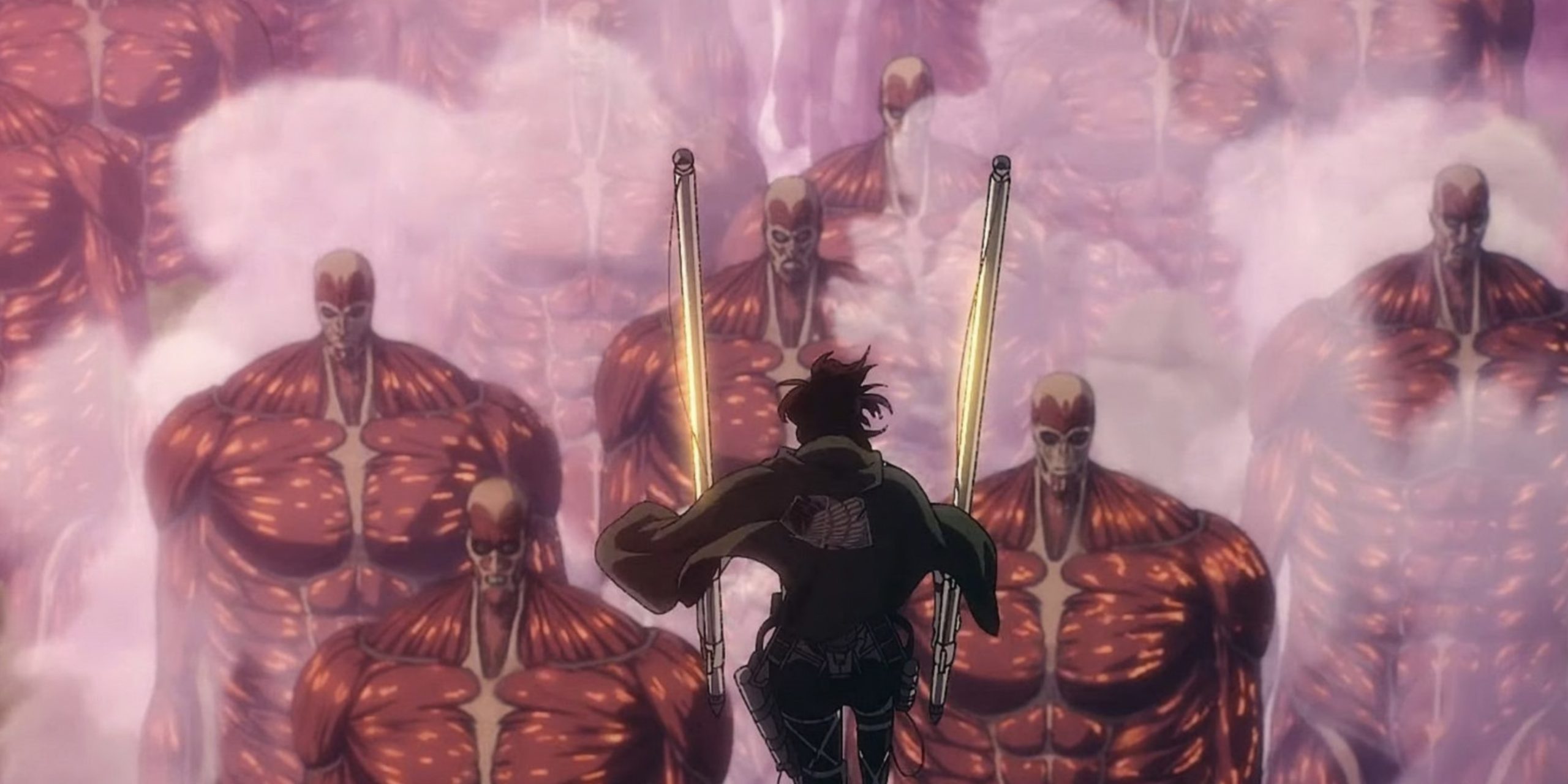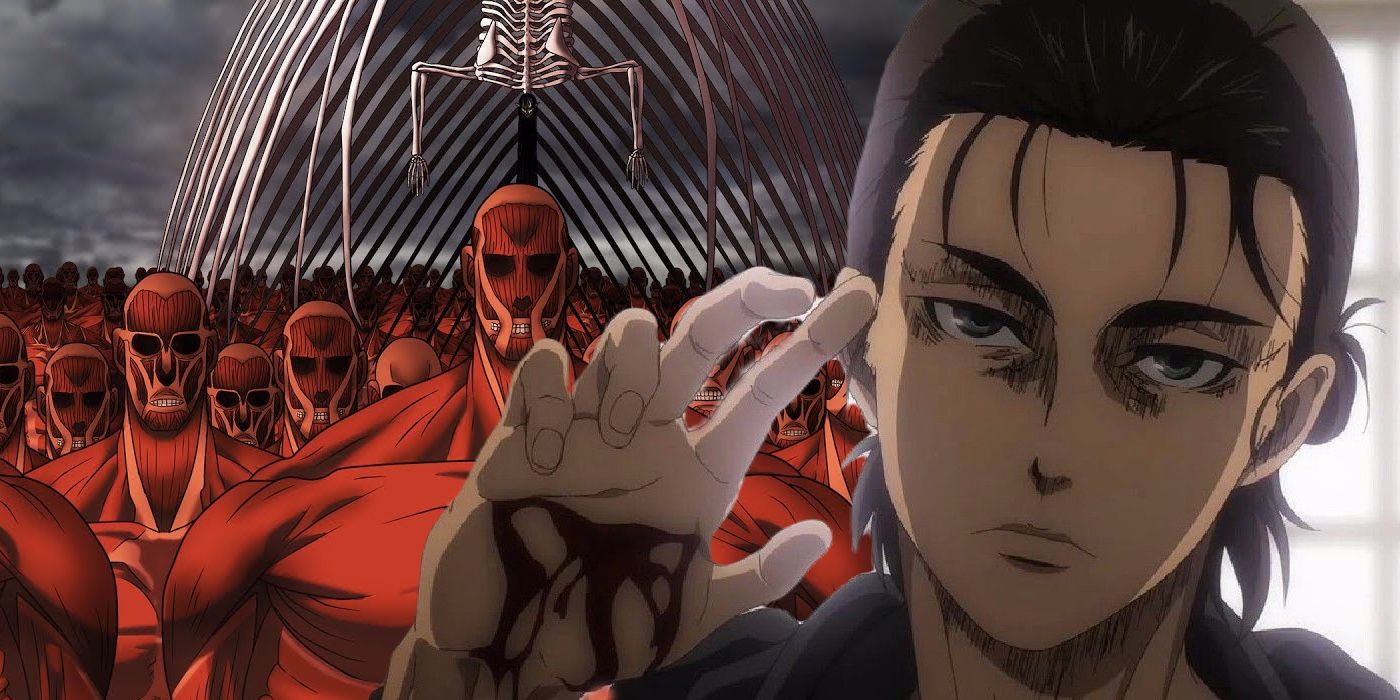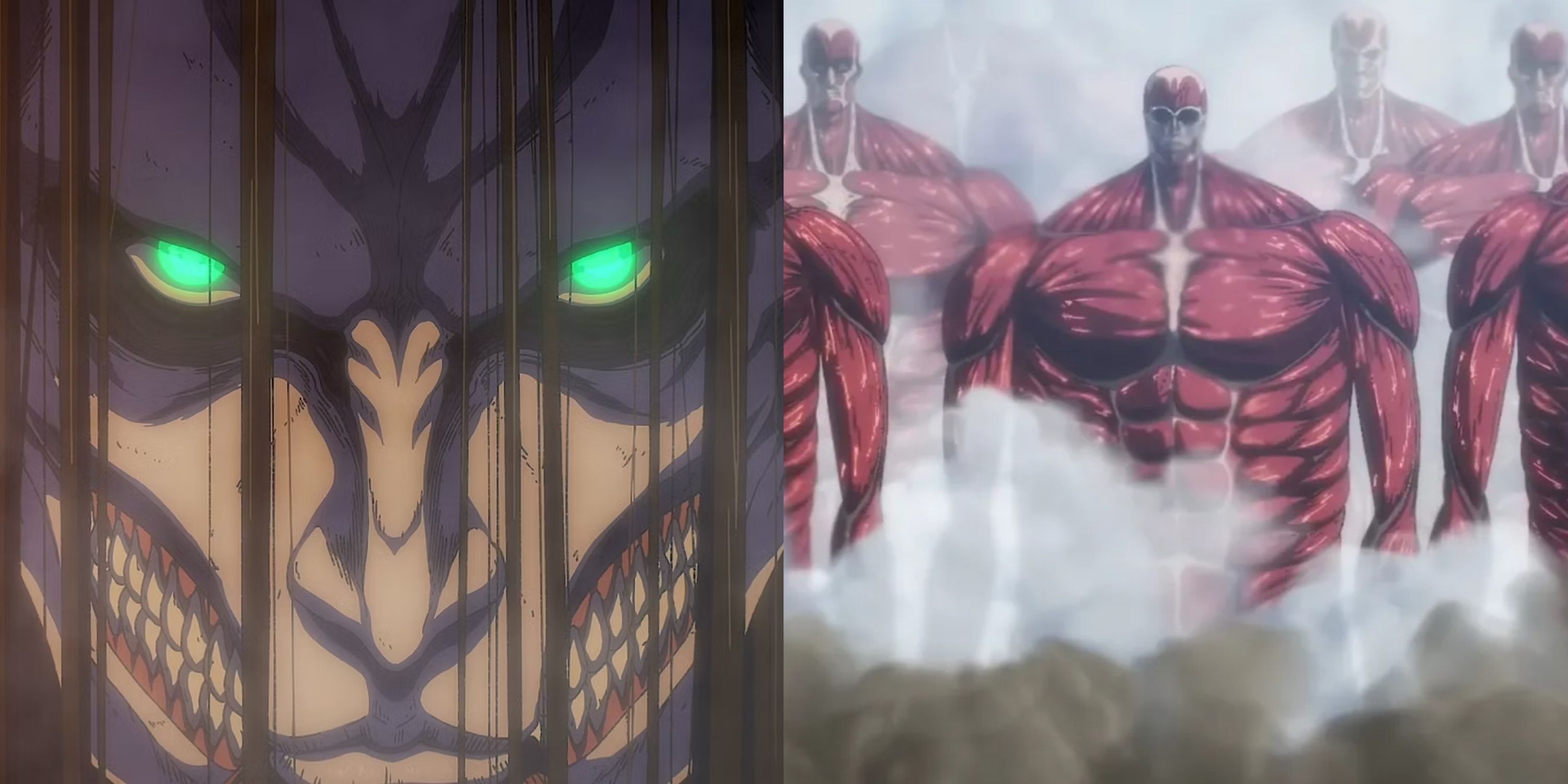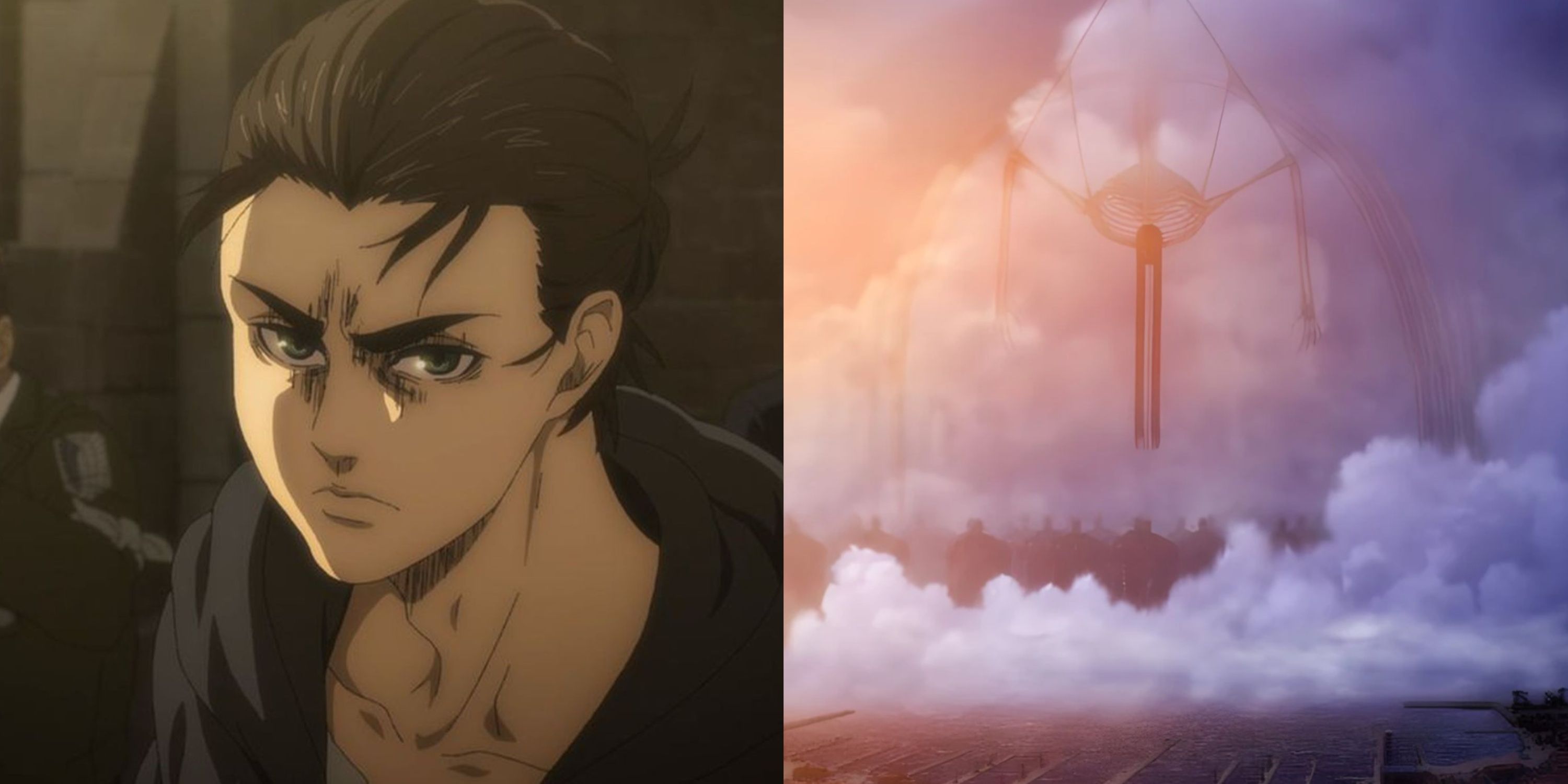Eren Yeager is one of the most complex characters in Attack on Titan, driven by a mix of personal trauma and societal pressures. His motivations evolve dramatically throughout the series, particularly as he faces the harsh realities of his world. Initially, Eren is a passionate young man who yearns for freedom, seeking to escape the confines of the walls that protect him from the Titans. However, as he uncovers the truth about the world and his own lineage, his motivations shift towards a darker path.
At the core of Eren's motivations is his desire to protect his friends and eliminate the threat posed by humanity's enemies. The loss of his mother to a Titan and the subsequent deaths of comrades weigh heavily on him. This profound sense of grief transforms into a burning desire for vengeance, leading him to take radical actions that many might find morally questionable. To understand Eren’s choices, it’s vital to consider:
- Trauma: Eren’s experiences shape his worldview, instilling a deep-rooted fear and rage.
- Freedom: His quest for freedom is not just for himself, but for his entire race.
- Influence: The impact of characters like Zeke and his friends also steers his choices.
Ultimately, Eren’s motivations are a blend of personal vendetta, the desire for freedom, and a desperate need to protect those he loves, culminating in the drastic decision to initiate the Rumbling.
The Concept of the Rumbling

The Rumbling is arguably one of the most significant and controversial events in Attack on Titan. This catastrophic plan involves unleashing the power of the Titans that reside within the walls of Paradis Island, specifically the Colossal Titans that serve as the foundation of the walls themselves. But what does this mean for the world?
Essentially, the Rumbling is Eren Yeager's way of ensuring the survival of his people by instilling fear and devastation in the hearts of humanity outside Paradise. Here’s a breakdown of its major elements:
| Element | Description |
|---|---|
| Execution Method | The Rumbling is activated by Eren using the Founding Titan's power to command the Colossal Titans. |
| Scale of Destruction | Millions of lives are at stake as entire nations face destruction. |
| Philosophical Implications | The Rumbling raises questions about morality, freedom, and the lengths one will go to protect their own. |
| Repercussions | The event leads to a global conflict, forcing characters to confront their beliefs and allegiances. |
In summary, the Rumbling is not merely a plot device; it's a powerful symbol of Eren's internal struggle and the harsh realities of his world. It encapsulates the extremes to which he is willing to go in pursuit of what he believes is right, making it a pivotal moment in the series.
Also Read This: Can You Do Fortnite Quests in Team Rumble? Tips for Completing Missions
Eren's Development Throughout the Series

Eren Yeager’s journey in Attack on Titan is nothing short of a rollercoaster ride. From a passionate boy who dreams of freedom beyond the walls, he evolves into a complex character shaped by trauma, loss, and the harsh realities of war. Let’s delve into the key phases of his development.
- Childhood Innocence: In the early episodes, Eren is filled with zeal and a desire to explore the world outside the walls. His motivation stems from a deep-seated belief in freedom and a longing to eradicate Titans.
- Rage and Revenge: The pivotal moment comes when Eren witnesses the tragic death of his mother during a Titan attack. This fuels his rage, and he vows to eliminate every Titan, leading him to join the Survey Corps.
- Discovering Powers: As he discovers his Titan-shifting abilities, Eren's journey turns inward. He grapples with the moral implications of his powers, questioning whether they make him a hero or a monster.
- Conflict and Isolation: With the revelation of the truth behind the Titans and the existence of Marley, Eren becomes more isolated. His relationships with friends like Mikasa and Armin start to strain as he embraces darker choices.
- The Path to the Rumbling: By the end of the series, Eren has transformed into a figure of radical change. The pain of loss and his desire to protect his friends lead him to initiate the Rumbling, showcasing a desperate attempt to secure their future at any cost.
Eren’s journey is a tragic one, reflecting the complexities of human emotion and the heavy burdens of leadership and sacrifice.
Also Read This: Who Won the Royal Rumble 2024 Women’s Match? A Look at the Champion
Key Influences on Eren's Decision

Eren Yeager’s decision to start the Rumbling is not just a spur-of-the-moment act; it’s a culmination of various influences that shape his worldview. Let’s explore the significant factors that drive Eren to this drastic decision.
| Influence | Description |
|---|---|
| Trauma and Loss | Eren’s childhood is marred by trauma, especially the loss of his mother. This experience instills a burning desire for vengeance and shapes his belief that extreme measures are necessary for freedom. |
| Friendship and Loyalty | His relationships with Mikasa and Armin play a crucial role. Eren feels a deep responsibility to protect them, which fuels his willingness to commit atrocities if it means ensuring their safety. |
| Ideological Shift | As Eren learns the truth about Titans and Marley, his perspective shifts. He becomes disillusioned with traditional notions of morality, leading him to justify the Rumbling as a means to an end. |
| Influence of Zeke | Zeke Yeager's vision significantly impacts Eren. Zeke’s belief that destroying humanity's ability to reproduce can end the cycle of hatred resonates with Eren, influencing his ultimate decision. |
| Existential Despair | Eren faces the weight of his reality, recognizing the seemingly unending cycle of violence. This despair leads him to believe that the Rumbling is the only way to break free from the bondage of fate. |
These influences combine to create a character who is both a tragic hero and a villain, illustrating the profound complexities of human choices in the face of adversity.
Also Read This: Does Rumble Allow NSFW Content? Understanding the Platform's Guidelines
The Role of Freedom and Control

In "Attack on Titan," the struggle for freedom versus control is a central theme, intricately woven into Eren Yeager's motivations. Eren's perspective on freedom drastically shifts throughout the series. Initially, he yearns for freedom from the confines of the walls, longing to explore the world beyond. However, as he learns more about the true nature of Titans and the history of his people, this desire becomes more complex.
Eren's decision to initiate the Rumbling stems from a belief that true freedom can only be achieved through overwhelming control—specifically, the control he seeks over humanity. He sees the Walls not just as physical barriers but as constraints imposed by a cycle of hate and fear. In his mind, the only way to ensure freedom for his friends and the people of Eldia is to eliminate the threat posed by the rest of the world. This culminates in his choice to unleash the Rumbling, a catastrophic means to an end.
Key Points:
- Eren's evolving definition of freedom.
- The Walls as symbols of oppression.
- The paradox of seeking freedom through control.
Ultimately, Eren's journey showcases a tragic irony: in his desperate quest for freedom, he becomes the very embodiment of control he sought to escape.
Also Read This: Who Won the Women’s Royal Rumble 2023? A Look Back at Key Moments
Consequences of the Rumbling
The Rumbling is one of the most pivotal events in "Attack on Titan," and its consequences ripple through every aspect of the story. When Eren unleashes the colossal Titans, he sets in motion a series of devastating outcomes that affect not just his enemies but also his friends and allies.
Firstly, the immediate devastation is catastrophic. Entire cities are obliterated, millions of lives are lost, and countless families are torn apart. This act of mass destruction raises profound ethical questions about the value of life and the cost of freedom. For Eren, each step of the Rumbling represents a step toward his vision of liberation, but for others, it's a horrific nightmare.
Consequences can be broadly categorized as follows:
| Category | Details |
|---|---|
| Human Cost | Millions of casualties and widespread mourning. |
| Moral Dilemma | The justification of mass genocide for perceived freedom. |
| Political Shift | Changes in power dynamics among nations. |
| Friendship Fallout | Strain on relationships between Eren and former allies. |
In the end, the consequences of the Rumbling serve as a chilling reminder of the potential horrors inherent in the pursuit of freedom without regard for the cost to others. Eren’s choices redefine what it means to be free, leaving readers questioning whether his actions were justified or a tragic mistake.
Curl error: OpenSSL SSL_connect: SSL_ERROR_SYSCALL in connection to chatgpt4online.org:443
Also Read This: When Does the Royal Rumble End? Event Duration Details
7. Fan Reactions and Theories
The world of Attack on Titan has sparked a myriad of fan reactions and theories surrounding Eren Yeager's monumental decision to initiate the Rumbling. Many fans were left in shock, grappling with a mix of emotions, as Eren's transformation from hero to antagonist unfolded. Some viewers expressed their dismay, feeling betrayed by a character they once admired. Others found Eren's actions to be a profound commentary on freedom and the lengths one might go to attain it.
In online forums and social media, fans have passionately debated Eren’s motivations. A popular theory suggests that Eren’s choice was influenced by his vision of a future shaped by trauma and the cycle of hatred. This has led many to reflect on the theme of freedom versus oppression, igniting discussions around whether Eren was justified in his actions. Some fans argue that Eren's brutal approach was necessary to break the cycle, while others believe there could have been a more peaceful resolution.
Here are a few notable fan theories:
- The Fate of the World: Some speculate that Eren was aware of a larger threat beyond Marley and wanted to save his people by any means.
- The Puppet Master Theory: There's a theory that Eren was manipulating events from the start, using the Rumbling as a strategic play to achieve his goals.
- Eldians vs. Marleyans: Others argue that Eren's actions were a means to protect Eldians at all costs, even if it meant committing atrocities.
Overall, the diversity of fan reactions and theories showcases the depth of Attack on Titan's storytelling, keeping the community engaged long after the series finale.
8. Conclusion: Eren's Legacy in Attack on Titan
Eren Yeager's legacy in Attack on Titan is undeniably complex. His journey from a passionate young soldier to the harbinger of destruction through the Rumbling raises critical questions about morality, freedom, and sacrifice. While some view him as a tragic anti-hero, others see him as a villain whose actions led to catastrophic consequences.
Ultimately, Eren's choices force us to reconsider the nature of heroism. Is a hero someone who fights against their enemies, or can they also be someone who makes devastating choices for what they perceive as the greater good? This duality makes Eren a deeply fascinating character.
In conclusion, Eren's legacy is one of contradiction and consequence:
| Aspect | Interpretation |
|---|---|
| Hero or Villain? | His methods blur the line, provoking debate among fans. |
| Thematic Depth | The series explores the harsh realities of war and the cycles of violence. |
| Impact on Characters | Eren’s choices profoundly affect his friends and foes alike, reshaping their narratives. |
As fans continue to analyze and discuss his legacy, one thing remains clear: Eren Yeager will be remembered as one of anime's most polarizing figures, prompting conversations about the cost of freedom and the darkness that can arise from love.
 admin
admin








